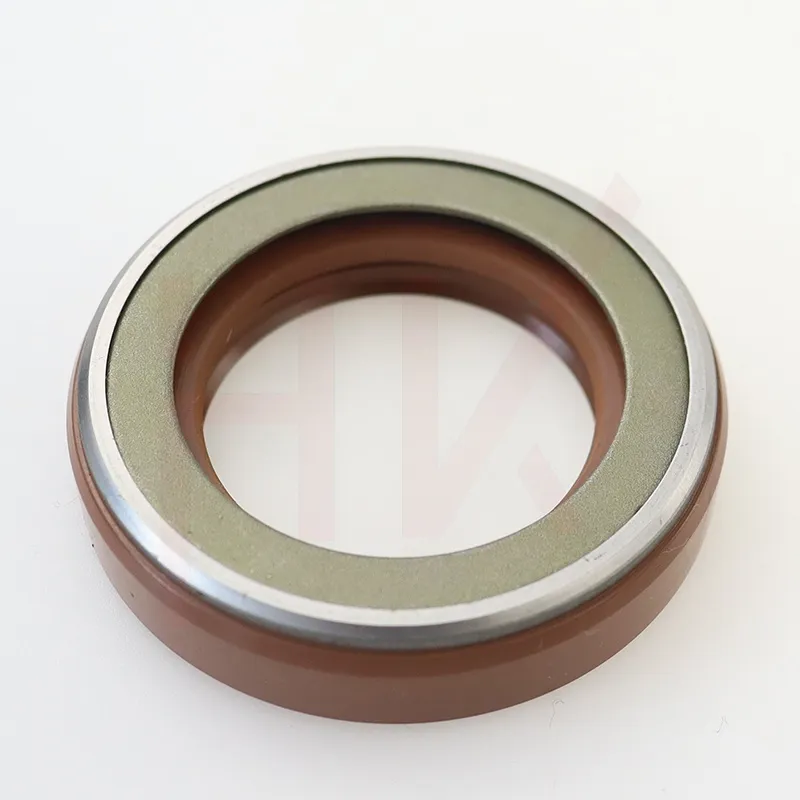Jul . 21, 2024 01:23 Back to list
Understanding the Role and Importance of Oil Seals in Machinery and Automotive Applications
The Function of Oil Seals An Overview
Oil seals, also known as grease or fluid seals, are critical components in various machinery and automotive applications. These seals play a vital role in ensuring the efficient and safe operation of engines, gearboxes, and other mechanical systems. Understanding the function of oil seals helps in appreciating their importance in mechanical design and maintenance.
Definition and Design
Oil seals are typically made from materials like rubber, silicone, or polyurethane. Their design features a flexible lip that fits closely against a rotating shaft while forming a barrier to prevent oil or lubricant from leaking out. Additionally, they can prevent external contaminants such as dust, dirt, and moisture from entering sealed compartments. This functionality is crucial in extending the lifespan of machinery and preventing potential failures.
Primary Functions of Oil Seals
1. Leak Prevention The most significant function of oil seals is to prevent the leakage of lubrication fluids from within a mechanical system. Oil leaks can lead to reduced lubrication, resulting in increased friction, overheating, and ultimately premature wear or failure of components.
2. Contaminant Prevention Oil seals serve as a barrier against external contaminants. By preventing the ingress of dirt, water, and other particles, they help maintain the integrity of the lubricant and the machinery's internal environment. This protection ensures that lubricants can function effectively, reducing wear and tear on moving parts.
3. Pressure Maintenance In many applications, oil seals are designed to maintain pressure within a system. By preventing the exit of oil and the entrance of contaminants, they help in sustaining the necessary pressure levels for optimal operation. This function is especially important in hydraulic systems, where pressure plays a critical role in performance.
what is the function of oil seal

4. Facilitating Smooth Operation Oil seals contribute to the smooth operation of rotating shafts by minimizing vibration and noise. When installed correctly, they help maintain a consistent lubricating film around the moving parts, providing a balanced environment where wear is minimized, and performance is maximized.
5. Durability and Reliability High-quality oil seals are engineered to withstand various operating conditions, including temperature fluctuations and exposure to chemicals. Their durability contributes to the overall reliability of machinery, as they reduce the frequency of maintenance and the risk of unexpected failures.
Applications of Oil Seals
Oil seals are used in a wide range of applications, from automotive engines and transmissions to industrial machinery and household appliances. In vehicles, for instance, oil seals are commonly found in engines, differential housings, and wheel bearings. Their presence is critical in ensuring that these components operate efficiently and safely.
In manufacturing and industrial settings, oil seals are essential in equipment such as pumps, compressors, and conveyor systems. They help maintain the needed lubrication and protect sensitive components from contaminants, thereby ensuring prolonged equipment life and enhanced performance.
Conclusion
In summary, oil seals are indispensable components in various mechanical systems, fulfilling multiple roles that enhance performance, durability, and reliability. By preventing leaks, keeping contaminants out, and maintaining essential pressure levels, oil seals ensure the efficient functioning of machinery across multiple industries. Regular maintenance and inspection of these seals are essential for optimal machine performance, highlighting their significance in engineering and operations management. Understanding the function of oil seals thus not only aids in effective maintenance strategies but also emphasizes their role in modern mechanical design.
-
TCN Oil Seal Metal Ring Reinforcement for Heavy Machinery
NewsJul.25,2025
-
Rotary Lip Seal Spring-Loaded Design for High-Speed Applications
NewsJul.25,2025
-
Hydraulic Cylinder Seals Polyurethane Material for High-Impact Jobs
NewsJul.25,2025
-
High Pressure Oil Seal Polyurethane Coating Wear Resistance
NewsJul.25,2025
-
Dust Proof Seal Double Lip Design for Construction Equipment
NewsJul.25,2025
-
Hub Seal Polyurethane Wear Resistance in Agricultural Vehicles
NewsJul.25,2025
-
The Trans-formative Journey of Wheel Hub Oil Seals
NewsJun.06,2025
Products categories
















